This is a story about two women in Uganda.
It’s also a story about sunshine, technology, and hope — and how people are fueling a healthier future for themselves and their children.
It is here that a woman named Phoebe Akiiki spends most of her days.
As a child, Phoebe watched her mother fall ill and nearly die before local doctors managed to save her life. Witnessing the power of medicine, she decided to become a health care worker.
“I felt like I owed a debt to help,” Phoebe recalled.

Midwife Phoebe Akiiki at the Kigambo Health Center in western Uganda.
As a midwife at Kigambo, Phoebe helps delivers as many as 35 babies a month to mothers who have often traveled for miles on foot to reach one of the few health clinics in the area.
Yet only a few years ago, the clinic would be enveloped in darkness once the sun set. It sits 10 miles from the nearest power grid.
“When I started working here, we didn’t have any electricity,” Phoebe says.
Instead, she and her colleagues often resorted to using the light of a solar-powered cellphone to illuminate their patients in the operating room.
Phoebe could see how scared her patients felt, gripped by pain in the pitch-black darkness.
“All of us were afraid,” she says. “Mothers would die while giving birth at night.”
Now, thanks to the Powering Health Care initiative, the Kigambo Health Center is one of 36 clinics across Uganda that have reliable electricity — powered by the sun.
Surrounding the clinic, solar panels installed with support from the U.K. Department for International Development enable doctors and nurses like Phoebe to safely deliver babies throughout the night.
“We’re now able to carry out all main operations,” Phoebe says. “The electricity has really helped us.”
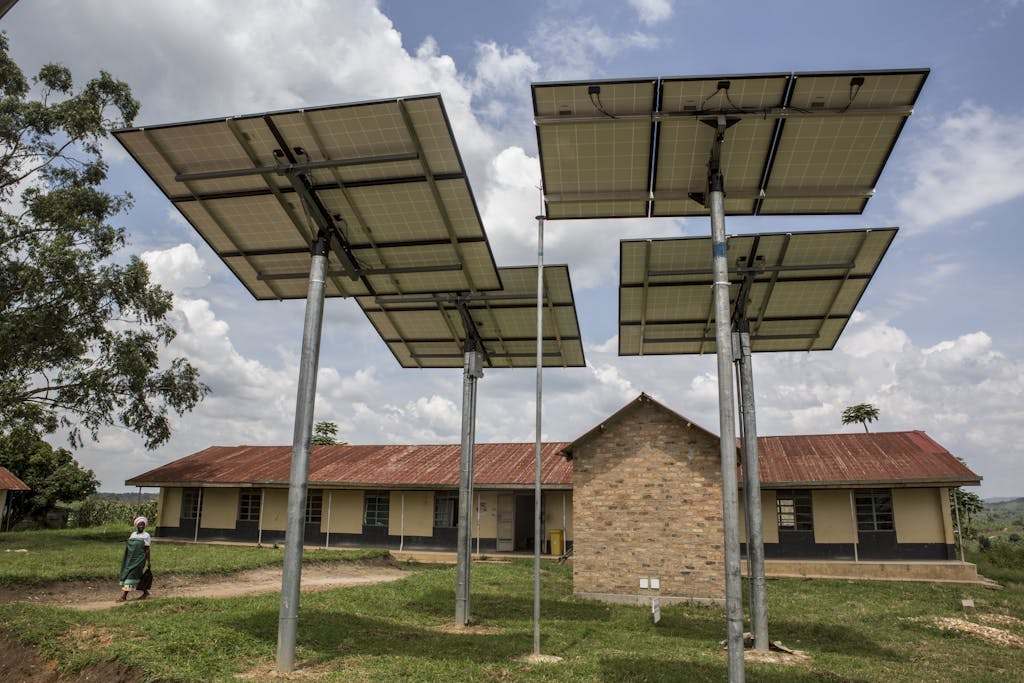
The Kigambo Health Center is one of 36 health clinics in Uganda that has been solarized thanks to the Powering Health Care initiative.
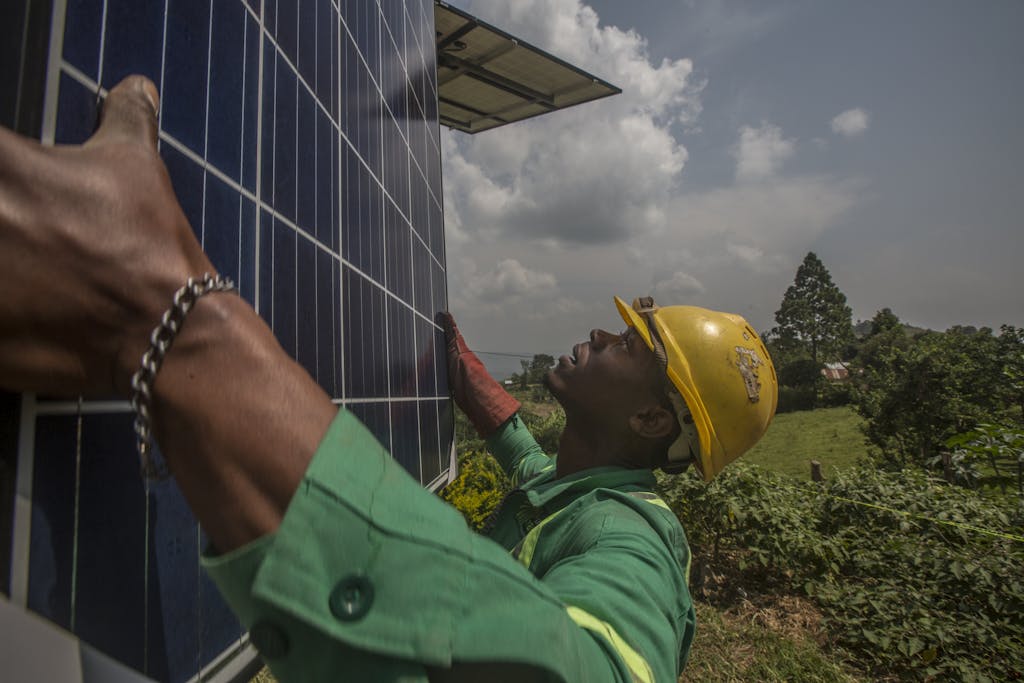
A technician installs a solar panel at the Kigambo Health Center thanks in part to to support from the U.K. Department for International Development
But in some parts of sub-Saharan Africa, an estimated one in four health facilities lack access to electricity. In low-income countries, roughly 70% of medical devices fail — largely as a result of erratic power.
Worldwide, more than 300,000 women die every year from complications related to pregnancy and childbirth, most of which are preventable and caused by inadequate medical care, according to the World Health Organization.
Providing solar power to health clinics means staff like Phoebe can safely deliver babies in the operating rooms.
It also means they have access to crucial equipment like respirators, incubators, and autoclaving chambers to sterilize medical instruments.
In an even more fundamental way, electricity in hospitals and health clinics means children have a healthy shot at life — by safeguarding vaccines.
Just ask Flavia Nambi.
Like Phoebe, she decided to become a nurse because of her mom. But unlike Phoebe, her mother’s story ended in tragedy. She died when Flavia was just a young girl.
“That’s why I became a nurse,” she says. “So I could help mothers and children.”
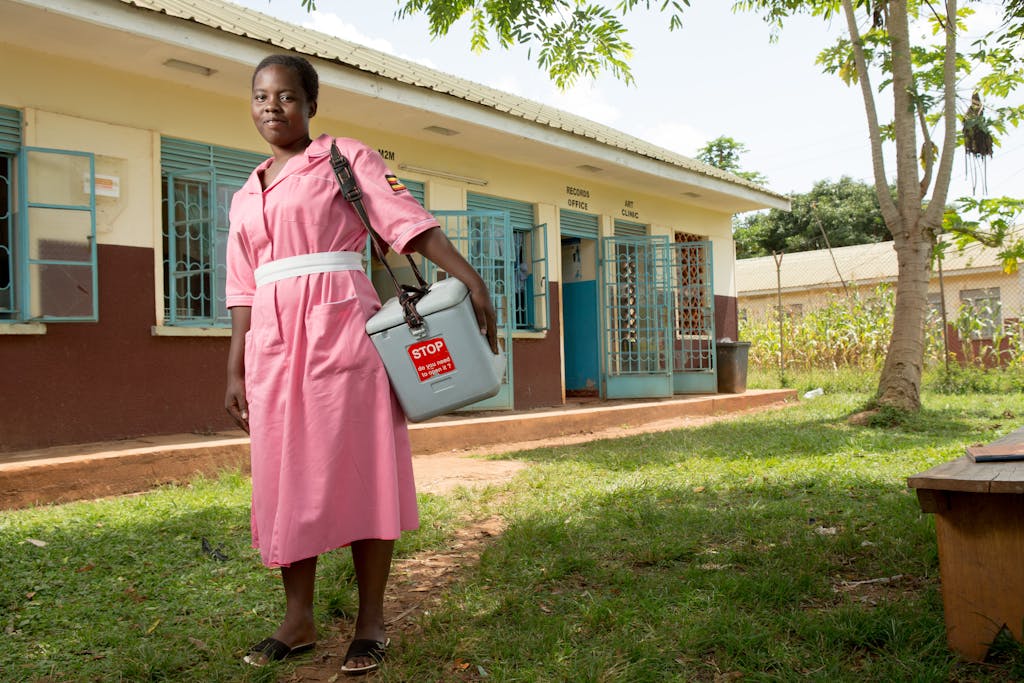
Nurse Flavia Nambi at the Nankandulo Health Center in eastern Uganda.
At the Nankandulo Health Center in eastern Uganda, Flavia provides much-needed care to mothers and children in her community.
She’s seen firsthand that vaccines save lives.
“In the past, things were different,” Flavia says. “Parents had trouble getting vaccines. Children would get sick and sometimes die.”
Vaccines not only save lives, they can stop malnutrition from stunting a child for life by preventing diseases from robbing young bodies of critical nutrients. Studies have shown that immunized children grow up to be healthier, more productive adults.
Yet according to the World Health Organization, one-fourth to nearly half of all vaccines are wasted each year — mainly as a result of breakdowns in the so-called “cold chain.”
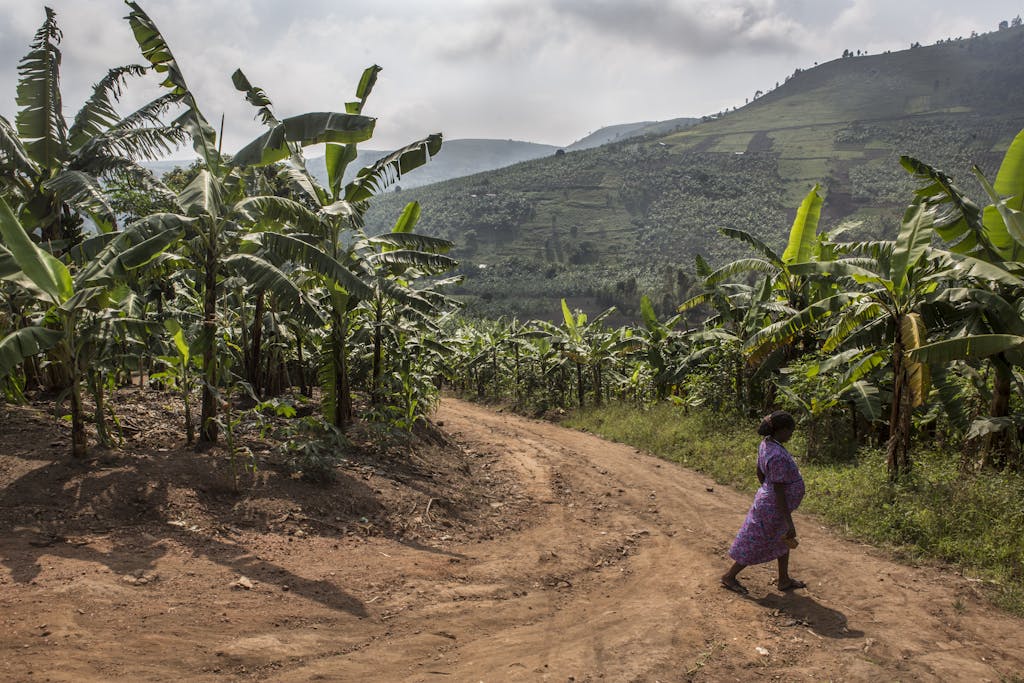
Right now nearly 1 billion people worldwide lack access to electricity.
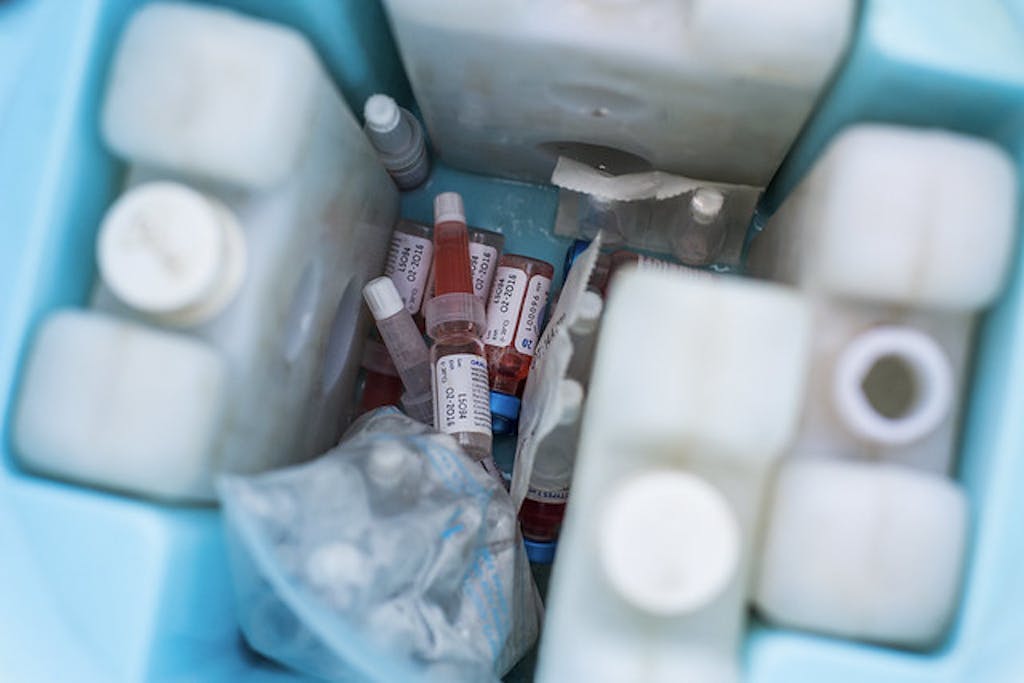
For vaccines to remain effective, they must be stored at cold temperatures — a challenge in impoverished and rural areas.
For vaccines to be effective, they must be stored in temperatures typically between 35 and 46 degrees Fahrenheit. Extreme temperatures can damage a vaccine’s potency.
But preserving the cold chain can be especially difficult in countries like Uganda, where electricity is unreliable or non-existent in the most remote and impoverished regions.
This also means that the communities most in need are often the most difficult to serve. According to Sustainable Energy for All, nearly 1 billion people in the world today lack access to electricity.
As Phoebe and Flavia know too well, women and children are disproportionately affected as a result.
Affordable and clean energy will play a pivotal role not only in global health and well-being, but also in reducing inequality, poverty, and hunger.
In fact, the ambitious global agenda adopted by 193 countries at the UN in 2015 — known as the Sustainable Development Goals, or “SDGs” — cannot be achieved without access to affordable, clean energy. It has been called the “golden thread” connecting economic growth, social equity and sustainability.
Renewable energy will also be crucial for tackling climate change. According to UN Environment, the single biggest contributor to global warming is energy production and use, accounting for roughly two-thirds of human greenhouse gas emissions.
The good news is we’re making progress. Technology and innovation are making sustainable energy available to more people than ever before. Today more than 20% of the world’s energy comes from renewable resources — and that percentage is growing.
Right now the UN is working with governments, companies, and local partners across the globe to help the planet’s most vulnerable people by providing vital access to sustainable energy. In the Zaatari refugee camp in Jordan, health clinics for Syrian families are running on solar power. In the Kutupalong camp in Bangladesh, solar-powered water filtration systems are preventing the spread of disease and improving sanitation for Rohingya families.
Meanwhile, the UN is helping save more than 2 million lives each year by supplying vaccines for nearly half of the world’s children. Last year, the UN Foundation’s Shot@Life campaign helped protect more than $580 million in U.S. government investments to fund this and other lifesaving work.
For Flavia, solar technology means she can carry out her life’s mission.
“Vaccinating a child may seem like a small thing,” she says. “But it has a huge impact on our children.”

Flavia explains the immunization process to mothers at her health clinic in eastern Uganda.
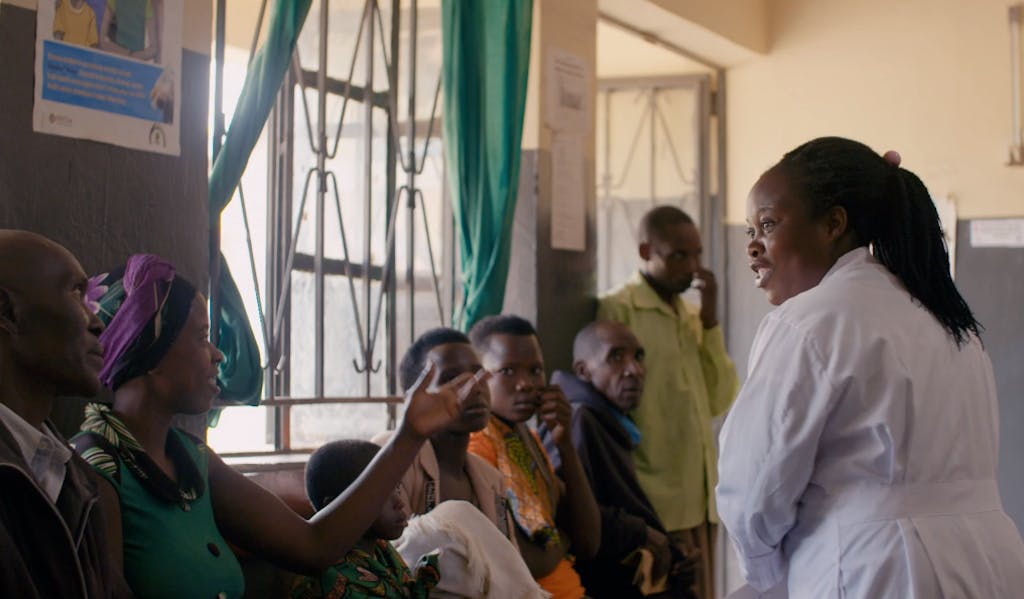
Phoebe laughs with a young couple in the waiting room at her health clinic in western Uganda.
For Phoebe, solar technology has transformed her future. “I will never leave,” she says of her clinic. “This is my home now.”
“All of the staff will stay because this place is shining.”




